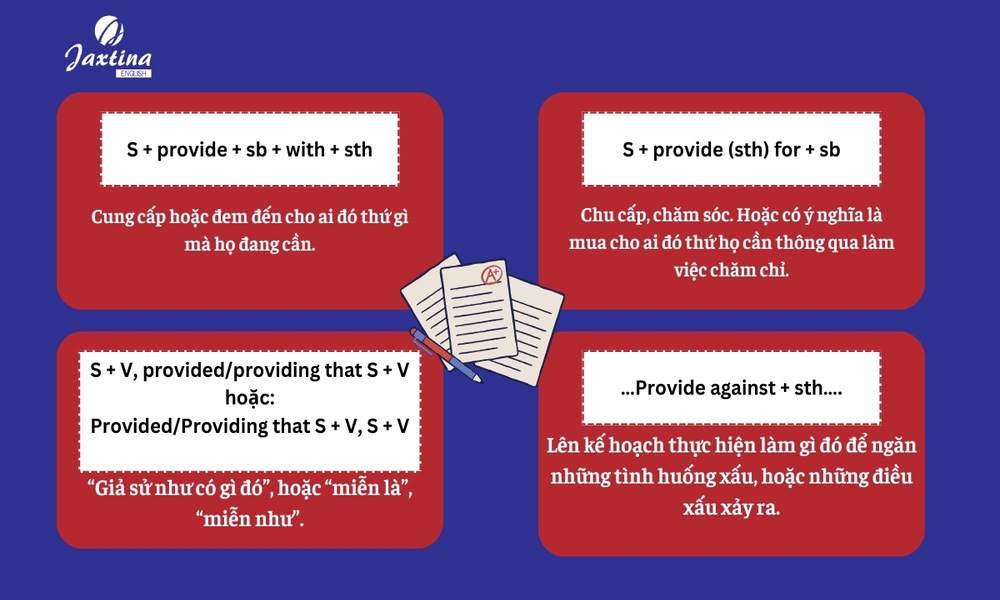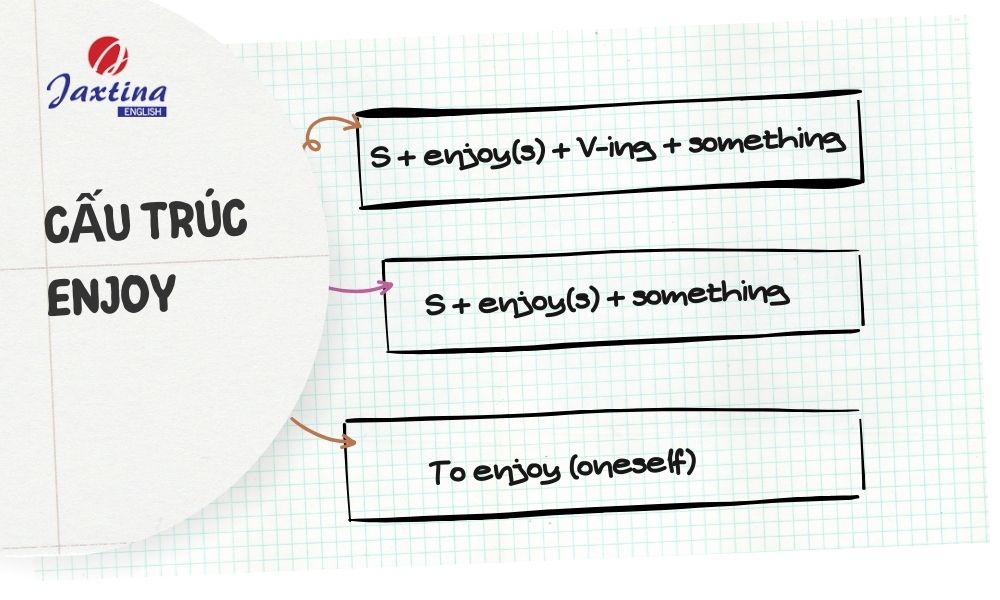Cấu trúc Suggest: Cách dùng, ví dụ chi tiết và bài tập vận dụng
Dislike to V hay Ving? [Ví dụ minh họa và bài tập vận dụng]
Dislike có nghĩa là gì? Dislike to V hay Ving? Đâu là các cấu trúc đúng ngữ pháp với Dislike? Tất cả câu hỏi này đều đã được trung tâm học Tiếng Anh Jaxtina giải đáp thông qua nội dung bài viết sau đây. Hãy xem ngay để nắm rõ các cấu trúc câu với Dislike nhé!
Tìm Hiểu Thêm: Ôn luyện Tiếng Anh cơ bản
1. Dislike là gì?
Dislike có nghĩa là không thích, cảm thấy không hài lòng hoặc không ưa điều gì đó. Trong Tiếng Anh, Dislike vừa là động từ và có thể là danh từ.
Ví dụ:
- I dislike waking up early in the morning. (Tôi không thích thức dậy sớm vào buổi sáng.)
- He dislikes attending large social gatherings due to his introverted nature. (Anh ấy không thích tham dự các cuộc tụ họp xã hội lớn do tính cách sống nội tâm.)
- She has a strong dislike for public speaking. (Cô ấy cực kỳ ghét việc nói trước đám đông.)
- She expressed her dislike of the new policy during the team meeting. (Cô bày tỏ sự không hài lòng với chính sách mới trong cuộc họp nhóm.)
Có Thể Bạn Quan Tâm: Hate to V hay Ving?
2. Sau Dislike to V hay Ving?
Sau Dislike sẽ dùng với Ving thay vì to V. Cấu trúc được sử dụng khi nói về việc không thích làm việc gì đó.
S + dislike + Ving + O
Ví dụ:
- He dislikes swimming in cold water; he finds it uncomfortable. (Anh ấy không thích bơi ở nước lạnh; anh ấy cảm thấy nó khá không thoải mái.)
- She dislikes waiting for long periods at the bus stop. (Cô ấy không thích phải đợi lâu tại bến xe buýt.)
- The child dislikes eating vegetables, but the parents encourage a balanced diet. (Trẻ không thích ăn rau nhưng bố mẹ khuyến khích trẻ cần có chế độ ăn uống cân bằng.)
- They dislike working late hours, so they strive for efficient time management. (Họ không thích làm việc muộn nên họ cố gắng quản lý thời gian hiệu quả.)
- I dislike getting up early, but it’s necessary for my morning routine. (Tôi không thích dậy sớm, nhưng nó cần thiết cho thói quen buổi sáng của tôi.)
Ngoài ra, sau Dislike bạn có thể dùng với các cấu trúc câu như sau:
| Cấu trúc | Ví dụ |
| Dislike of sb/sth | Despite his dislike of public speaking, he accepted the invitation to give a presentation. (Mặc dù không thích nói trước đám đông nhưng anh ấy vẫn chấp nhận lời mời thuyết trình.) |
| Dislike for sb/sth | His dislike for the cold weather is the main reason he moved to a warmer climate. (Việc không thích thời tiết lạnh giá là lý do chính khiến anh ấy chuyển đến nơi có khí hậu ấm áp hơn.) |
| Dislike sb/sth | I dislike her arrogant attitude. (Tôi không ưa thái độ kiêu ngạo của cô ấy.) |

Dislike to V hay Ving?
Có Thể Bạn Thắc Mắc: Afford to V hay Ving?
3. Bài tập về Dislike kèm đáp án
Tìm và sửa các lỗi sai trong các câu sau đây:
- She openly dislikes attend social events with large crowds.
- I strongly dislikes the taste of olives; they’re not to my liking.
- He dislikes to work on weekends, preferring a weekday schedule.
- They openly dislike at the new policy changes in the workplace.
- Many students dislike to taking exams due to the stress they bring.
- The manager dislikes micromanaging and encourages employee autonomy.
- She dislike the cold weather and prefers a warm climate.
- The team members openly dislikes the new team-building exercises.
- He dislike waiting in long lines at the grocery store.
- My cat dislikes be bathed; it’s always a challenging task.
- The child openly dislikes to eating vegetables and often refuses to touch them.
- Despite being an actor, he surprisingly dislikes to be in the spotlight at social events.
- She dislike the chaos of rush hour traffic and prefers to commute during off-peak hours.
- The professor openly dislikes using outdated teaching methods and advocates for innovative approaches.
Xem đáp án
- dislikes attend => She openly dislikes attending social events with large crowds.
- dislikes => I strongly dislike the taste of olives; they’re not to my liking.
- dislikes to work => He dislikes working on weekends, preferring a weekday schedule.
- dislike at the new => They openly dislike the new policy changes in the workplace.
- dislike to taking => Many students dislike taking exams due to the stress they bring.
- encourages => The manager dislikes micromanaging and encouraging employee autonomy.
- She dislike => She dislikes the cold weather and prefers a warm climate.
- openly dislikes => The team members openly dislike the new team-building exercises.
- dislike waiting => He dislikes waiting in long lines at the grocery store.
- dislikes be => My cat dislikes being bathed; it’s always a challenging task.
- dislikes to eating => The child openly dislikes eating vegetables and often refuses to touch them.
- dislikes to be => Despite being an actor, he surprisingly dislikes being in the spotlight at social events.
- She dislike => She dislikes the chaos of rush hour traffic and prefers to commute during off-peak hours.
- advocates => The professor openly dislikes using outdated teaching methods and advocating for innovative approaches.
Bài viết trên đây của Jaxtina English Center đã giúp bạn giải đáp câu hỏi Dislike to V hay Ving mới là cấu trúc đúng ngữ pháp cũng như chia sẻ các cấu trúc khác với động từ này. Mong rằng sau khi đọc bài viết này bạn sẽ thành thạo sử dụng cấu trúc câu với Dislike phù hợp trong từ ngữ cảnh.
Kiến Thức Hữu Ích:

Đơn giản hoá việc học tiếng Anh

Tiên phong đào tạo
tiếng Anh toàn diện 4 kỹ năng.










